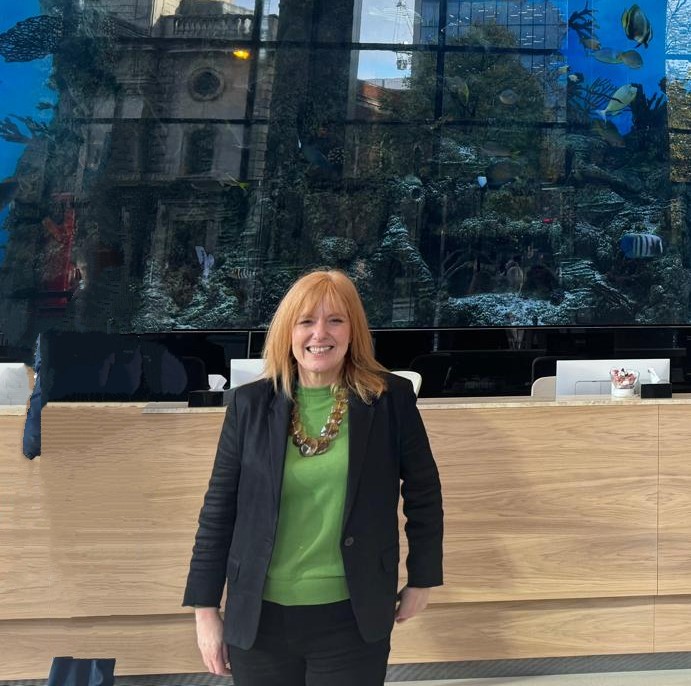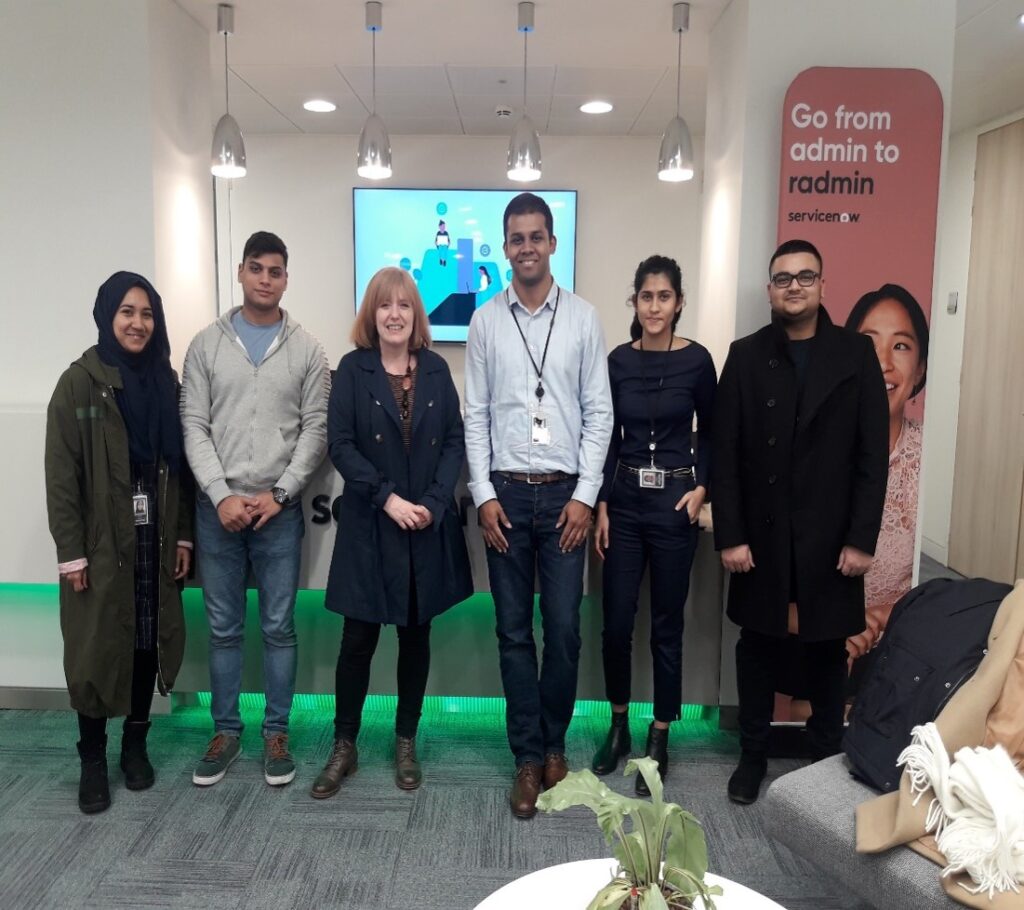Claire moved from professional services to part of lecturing staff recently.


Could you tell me about your academic position and the history behind it?
I am not a computer scientist or electronic engineer, but I am now a lecturer and took up this post in January. I am the Project Coordinator for our final year and MSc project modules and this semester I have also been teaching a second-year degree apprenticeship module called Reflective Practice for Technology Professionals. I’ve been working in EECS for nearly sixteen years and prior to becoming a lecturer spent 14 years as the EECS industrial placement manager and just over a year as a teaching fellow as part of the faculty degree apprenticeships team. I managed all the programs with industrial experience and was also module organiser for these, so I had existing experience of learning and teaching. I was given the autonomy to develop learning materials related to employability and skills development and from this I also got involved in the development of other modules including the precursor to what has now become Professional Research Practice.
How does your background in professional services help with your teaching?
I have a broad understanding of what happens on the professional services side of things so I know who to go to and what to ask. With the project coordinator role this kind of detail can be very important. I think my PS background helps me to be organised too, and I feel I can’t teach a module well without a well-organised structure behind it. It is important to know that everything is in place to enable my teaching.
It feels like it was almost a gradual move from professional services to a lectureship?
Yes, over the years of being a module organiser I got increasingly involved with embedding things I cared about into the curriculum. For example, I started working with Usman Naeem on his “Web Technology” module and helped develop a piece of coursework that was related to skill development. The students were encouraged to create a portfolio that in addition to meeting the technical requirements of the module also showcased their skills. From this work Usman and I founded the mySkills initiative which is a framework that embeds employability tasks into the curriculum and encourages students to reflect on the skills they gain from modules and other activities. It is about their personal brand. In the first year they create a LinkedIn profile and a github page and we encourage them to attend a networking event. They are also asked to reflect on a set of questions about the technical and non-technical skills they learned from each module. Students can find themselves bouncing from one deadline to another without making connections between modules. mySkills provides the opportunity for them to step back and consider how modules connect and how the things they are learning feed into their personal and professional development more broadly.
What are the most important skills you feel you bring to the teaching environment?
I am an accredited coach and have undertaken training and qualifications with Queen Mary and independently. Since qualifying I have become part of the QMUL coaching network where I volunteer to coach colleagues across the university. I have learned a lot about one-to-one coaching and how beneficial it is to provide someone with the time and space to reflect on what’s going on in their lives and what they want to change or build upon. This feeds into my teaching as there are a lot of similarities between good coaching and good teaching especially in terms of empowering people to take responsibility for their own learning and development and the importance of reflection. These skills have also made it easier for me to build rapport with students whether on a one-to-one basis or in a group setting.
You mentioned “reflective practice for technology professionals”, I don’t really know what that is.
Degree apprentices are already employed and in addition to gaining the academic knowledge needed to be successful on their degrees they are also required to demonstrate competency across a range of professional skills and behaviours. The apprentices I teach are on the software engineer and data analyst pathways. Through the module they are encouraged to reflect on what being a ‘technology professional’ means to them both from an individual perspective but also as part of an organisation and as a community beyond the workplace. This includes the application of theory to practice and vice versa, so they are asked to consider for example, how software engineering methodologies they are introduced to in their modules apply to their actual experiences at work. We also look at things like leadership, innovation, ethics and sustainability.
Tell me about the ethics and sustainability teaching?
I do not teach the basic principles of ethics as this is covered more fully in other modules. Instead, we focus on what being an ethical professional means to them in practice. The students on degree apprenticeships face real ethical issues in their day-to-day jobs so they have meaningful experiences to draw from and mull over. Similarly, with sustainability the students are asked to reflect on and share how sustainable development goals are demonstrated by their organisations and what part they as individuals currently play or might play in the future in influencing these.
Your class size is around sixty. How do you assess reflection with such a large class size?
Reflection is quite a tricky thing to assess! I am looking for evidence they have thought deeply and critically about the topics they choose to write about. For example, if they choose the assignment about ethical practice, they will need to focus on very specific situations that they were exposed to at work and explain what they learnt from these and how this has shaped them as a professional. I would also be looking for evidence of them learning from mistakes and thinking about what they could do differently if they were in a similar situation again.
How do you fit in with our teaching team?
I left school at 16 and didn’t go to university until I was 32 so sometimes, I find it hard to believe I am now a university lecturer! I am grateful for the support and encouragement I have received from my colleagues and know that my contribution is valued even though I am not a typical EECS academic. I think that the 16 years I have spent working in the school have served me well as I have gained a good understanding of our students and what their needs are especially in relation to their skills and employability. I really enjoy working with EECS students too and can’t imagine working with any other discipline now.